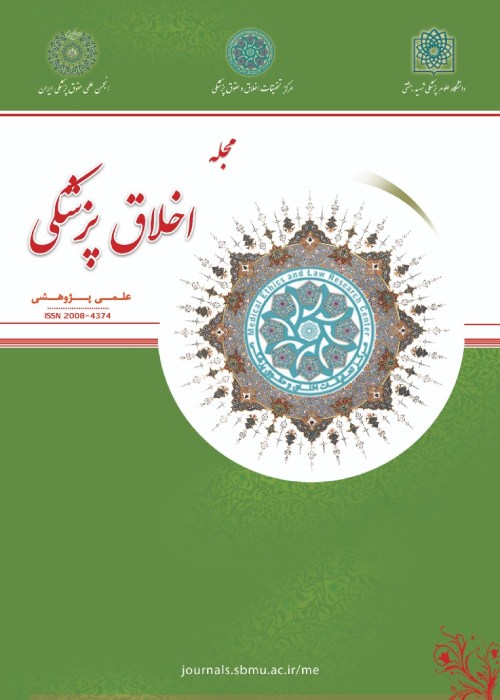The Relationship between Moral Distress and Resiliency in Nurses
Moral distress is one of the most common issues in nursing that can have different effects on health and performance of nurses and patients and health organizations. Resilience is defined as the social and personal capacity for recovery, adjustment, and persistence against adversity that can help nurses reduce moral distress.The purpose of this study was to determine the relationship between ethical distress and resilience in nurses working in hospitals affiliated to Shahid Sadoughi University of Medical Sciences in Yazd in 2019.
This cross-sectional study was performed on 250 nurses working in hospitals affiliated to Shahid Sadoughi University of Medical Sciences in Yazd, Iran. Samples were selected by stratified random sampling. Data collection tools included three questionnaires of demographic characteristics, modified ethical distress scale, and Connor and Davidson resilience scale. Data analysis was performed using descriptive and inferential statistics (independent t-test, one-way ANOVA, Tukey, Pearson tests) in SPSS 20 software.
The results showed that there was no significant relationship between the mean score of moral distress and resiliency of nurses (r=-0.027, p=0.67). Among the resilience dimensions, there was a significant inverse relationship between "control" and "positive acceptance of change, and secure relationships" with moral distress" (P<0.05). The mean score of moral distress was 31.36±9.99, which shows a moderate level of moral distress. The mean score of resiliency of nurses was 64.87 ±11.11. The highest and lowest score of resiliency pertained to the dimension of "spiritual influences" (68.05±20.22) and "trust in one’s instincts, tolerance of negative affect" (60.44±13.38), respectively. There was a significant relationship between moral distress with gender, marital status, shift status, age groups, employment status and work experience (P<0.05). Also, resilience had a significant relationship with gender, marital status, education level and employment status (P<0.05). Ethical Considerations: This study is approved by the Ethics Committee on Medical Research. Ethical considerations such as completing the informed consent form voluntary participation, explaining research goals, and assurance of confidentiality were observed.
Individuals with higher ability to "control" and "accept positive change and secure personal relationships" experience less moral distress. Therefore, it is possible to reduce moral distress and consequences such as maintaining the workforce and improving the quality of patient care by applying educational strategies promoting these dimensions and supporting nursing managers
- حق عضویت دریافتی صرف حمایت از نشریات عضو و نگهداری، تکمیل و توسعه مگیران میشود.
- پرداخت حق اشتراک و دانلود مقالات اجازه بازنشر آن در سایر رسانههای چاپی و دیجیتال را به کاربر نمیدهد.



